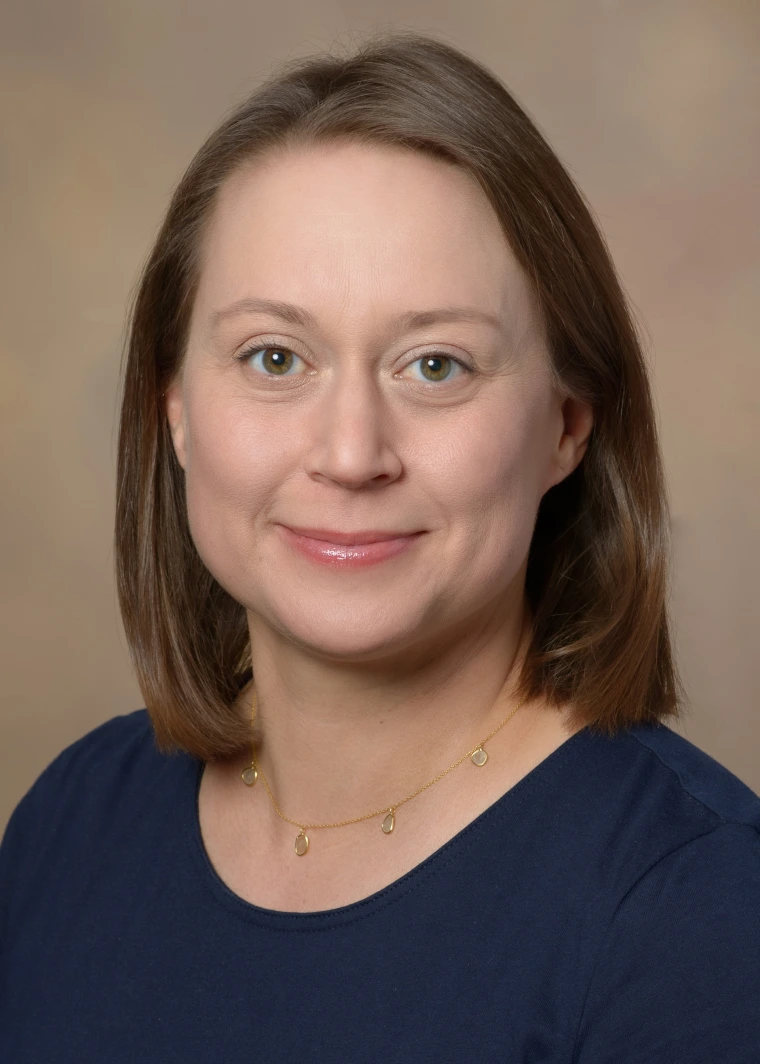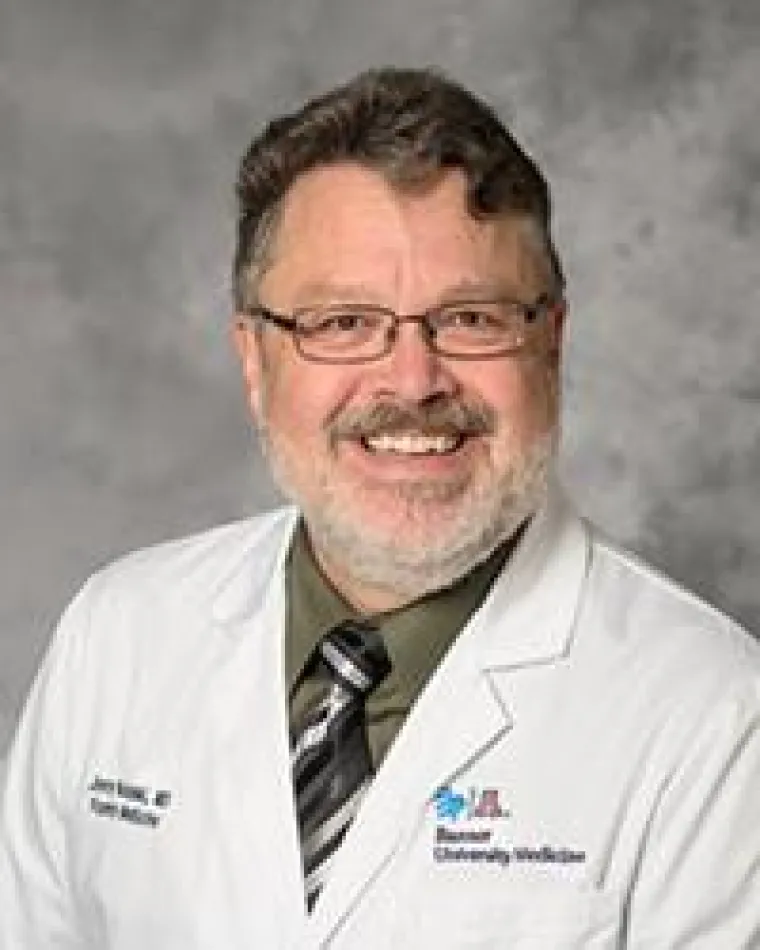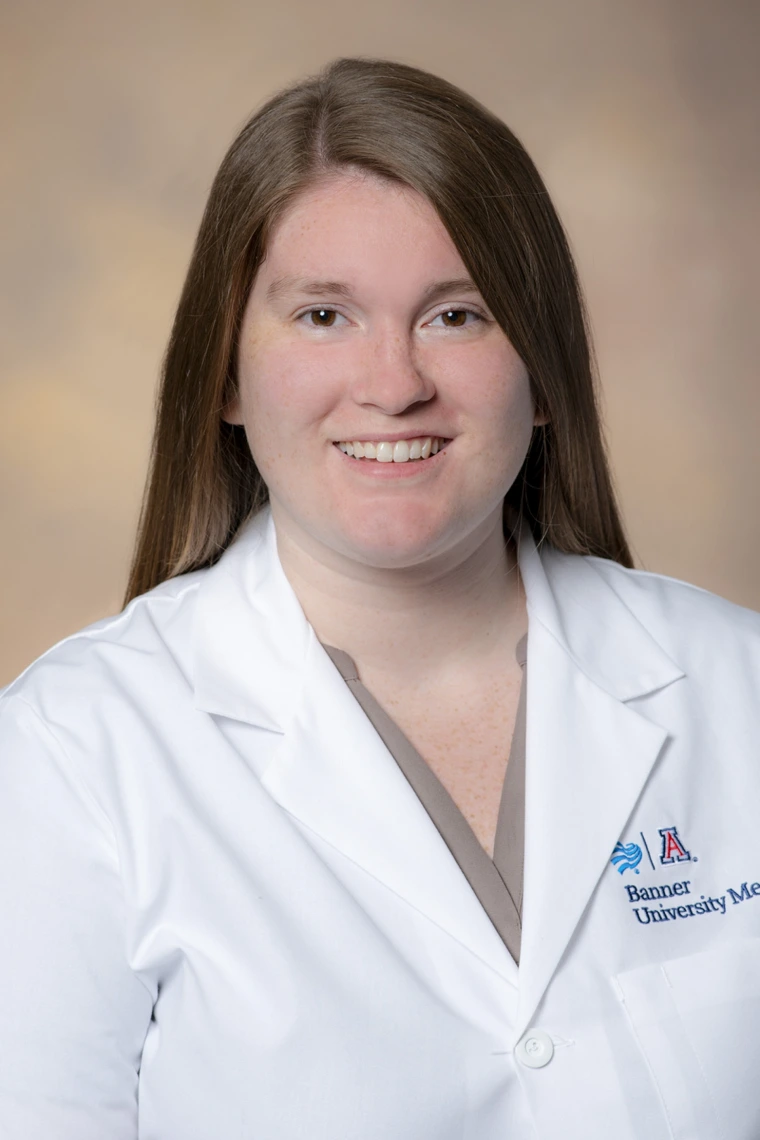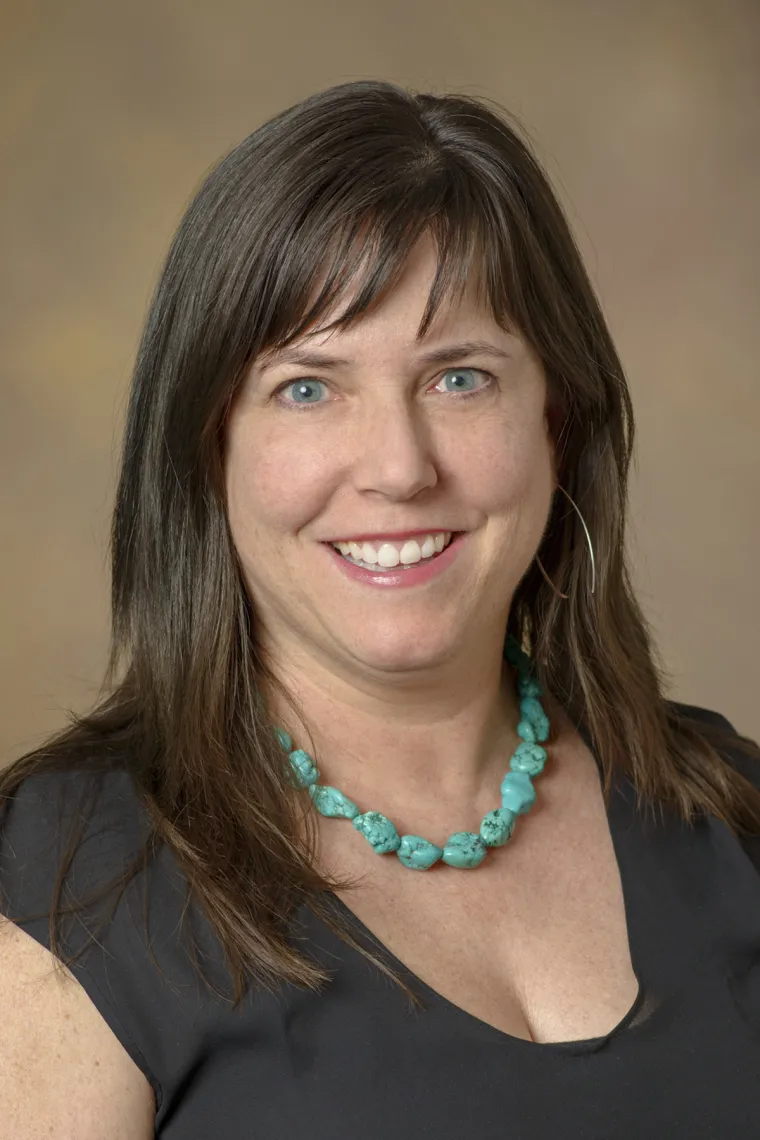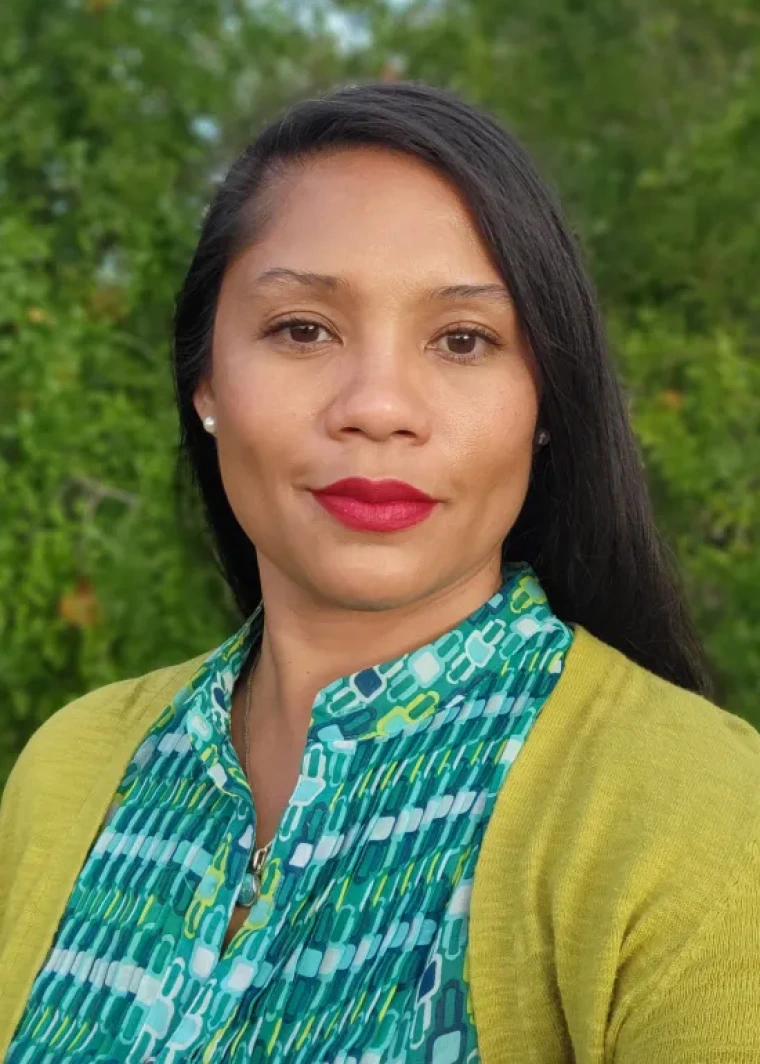Refugee Health Program
The Department of Family and Community Medicine has long been at the forefront of providing comprehensive health care services to refugee populations in Pima County. Refugees face significant health and social challenges upon resettlement, including trauma, language barriers and limited access to care.
Our Mission
The mission of the Refugee Health Program is to improve the health and well-being of refugee populations through integrated, culturally informed health care, research, education, community engagement and advocacy. By fostering collaboration between clinical care providers, legal professionals and community partners, the Refugee Health Program aims to address the unique challenges refugees face in the United States.
University Partners

The University of Arizona Cancer Center is a regional resource and national model for overcoming cancer risks, improving treatments through transdisciplinary discoveries, training talented scientists and providers, and engaging communities though a shared determination to discover, innovate and improve health equity.

The University of Arizona Center for Transformative Interprofessional Healthcare (CTIPH) was founded as a coordinating center to advance University of Arizona Health Sciences interprofessional education, collaborative practice and research.

The Commitment to Underserved People (CUP) program is a student-developed and student-directed co-curricular program.

The Sonoran Center for Excellence in Disabilities is based on the vision of a community benefiting from the full participation of all members, with recognition of the strengths brought by diversity in abilities, culture, age and life experience.

The Tucson Family Advocacy Program (TFAP) is a partnership of health care providers and lawyers working together to improve the health and well-being of low-income patients and their families.
Community Partners

The Catholic Community Services of Southern Arizona helps children, families and individuals live with independence and dignity.

Iskashitaa Refugee Network creates opportunities to integrate UN refugees into the southern Arizona community while educating the public and strengthening the local food system, reducing local food waste and increasing food security.

Jewish Family & Children’s Services of Southern Arizona aims to increase the well-being of individuals, families and ultimately our community by providing trauma-informed, person-centered services to people from all backgrounds.

Lutheran Social Services of the Southwest stabilizes people during crisis and transition, builds a foundation where people can thrive, and preserves dignity and respect for the most vulnerable.

Pima County Health Department is dedicated to helping Pima County residents achieve and maintain an optimal level of wellness.

Tucson Refugee Ministry educates, equips and mobilizes the church to serve refugees in our community and beyond.
National and International Partners

American Academy of Family Physicians promotes and maintains high quality standards for family doctors who are providing continuing comprehensive health care to the public.

The Society of Refugee Healthcare Providers is the premier association for professionals committed to the health and well-being of refugees and immigrants worldwide.
Directors
Clinical Faculty
Research Faculty
University Partners

Scientific Analyst I
Associate - Research Associate, Cancer Center Division
Research Staff
Staff
Tosha Bell, Refugee Health Coordinator
Paola Martinez, Refugee Health Medical Assistant
Awards
- 2024 UA College of Medicine-Tucson: Excellence in Diversity, Equity and Inclusion Award (TFAP)
- 2024 Clinical Excellence Award from The University of Arizona College of Medicine Tucson for work with refugees (Sommer Aldulaimi)
- 2023 Paul H. Chapman Award from The Foundation for Improvement of Justice (Suzanne Teeple)
- 2023 International Humanitarian Award from MedGlobal International For work on decreasing maternal and neonatal deaths in the Rohingya Refugee Camp (Sommer Aldulaimi)
News and Media
- Aldulaimi S. “Saving Lives and Responding to the Refugee Crisis”. Interview for Focusonher.net. September 2020. https://focusonher.net/saving-lives-and-responding-to-the-refugee-crisis
We have over 50 national and international presentations and publications focused on refugees including on the following topics: Caring for complex refugees, creating a refugee clinic, medical legal partnerships to help refugees, navigating filling out the Form N648, advanced care planning in refugees and many others.
Select Presentations
- Aldulaimi S, Koleski J. “Care of Complex Refugees”. AAFP Global Health Summit. Phx, AZ. September 2024
- Teeple S, Aldulaimi S, Ssempijja S. “Form N-648 in Practice: Screening, Documentation, and Education for Disability-Based Exemptions to the US Citizenship Exams”. Workshop. International Refugee and Migrant Health Conference. Halifax, Nova Scotia, Canada. June 2025.
- Aldulaimi S, McKeith A, Rivers P, Weiss B. “Advanced Care Planning in Refugees”. International Refugee and Migrant Health Conference. Halifax, Nova Scotia, Canada. June 2025.
- Gossa W, Aldulaimi S. “Global Health Roundtables and Networking: Decolonizing Global Health, Anti-racism and health equity, Challenges facing Family Medicine globally, Care of refugees and asylum seekers, Global Family Medicine education, Global health practice in the time of COVID-19 pandemic”. Session facilitator and topic facilitator for 2 topics. Networking session Global Health Summit at Family Medicine Experience. American Academy of Family Physicians. September 2022.
- Aldulaimi S. Goodwin J, Cuneo N, Rimoin A. “Refugee/Immigrant Health and the Crisis at the Southern Border Expert Panel”. 2021 Multicultural and Global Health Symposium. UTHSC Center for Multicultural and Global Health. November 2021. Invited Expert Panelist.
- Aldulaimi S, Koleski J. “Improving the Care of Refugees in Resettlement Countries.” WONCA World Conference. Dubai, UAE. November 2021.
Select Publications
- McKeith A, Aldulaimi S, Rivers P, Weiss BD. Advanced Care Planning in Refugee Patients. American Journal of Hospice and Palliative Medicine®. 2025;0(0).
- Yeo S, Kim-Hines Y, Ehiri J, Magrath P, Johnson-Agbakwu C, Ernst K, Ibrahimi S, Alaofè H. A qualitative study exploring the factors influencing maternal healthcare access and utilization among Muslim refugee women resettled in the United States. PLoS One. 2024 Aug 16;19(8):e0307192. doi: 10.1371/journal.pone.0307192. PMID: 39150938
- Aldulaimi S, Teeple S. “Documenting US Citizenship Examination Exemption for Medically Qualified Refugees”. Am Fam Physician. 2024;110(5):539-541. PMID: 39556641
- Yeo S, Stewart H, Mohan R, Poudel-Tandukar K, Aldulaimi S, DiVito B, Alaofè H. "Nobody does checkups back there: a qualitative study of refugees' healthcare needs in the United States from stakeholders' perspectives.” Plos One. June 2, 2024. PMID: 38833462
- Yeo S, Park Y, McClelland DJ, Ehiri J, Ernst K, Magrath P, Alaofè H. A scoping review of maternal health among resettled refugee women in the United States. Front Public Health. 2023 May 9;11:1157098. doi: 10.3389/fpubh.2023.1157098. PMID: 3725007
- Aldulaimi S, Koleski J. “How to Implement a Refugee Clinic within an Existing Practice”. FPM. July 2022. PMID: 35820188
Clinical Work
Our clinical work aims to bridge the gaps that refugee patients can face in accessing health care by providing support in system navigation, case management services and health literacy.
Most of our clinical work is conducted at the Alvernon Family Medicine Clinic in midtown Tucson near a high concentration of refugee populations and community organizations dedicated to refugee support. Faculty members conduct new refugee domestic medical exams (CDC-mandated health screenings) for newly arrived refugees, manage a specialized complex care clinic designed to address the multifaceted health needs of refugees with complicated conditions, and provide ongoing care and support to a high number of established primary care patients from refugee communities.
The clinical faculty also provide care at the complex care clinic at the El Rio Abrams location. Our faculty have experience working with refugees abroad as well. Our clinical work aims to bridge the gaps that refugee patients can face in accessing health care by providing support in system navigation, case management services and health literacy.

- Our complex care clinics are meant for some of our most medically or socially complicated refugee patients. Referrals to our refugee clinic are typically internal, although we have a relationship with local refugee resettlement agencies as well.
- The clinics are conducted twice a month at the Banner Alvernon Family Medicine clinic and the El Rio Abrams Family Medicine Clinic.
- Our care team consists of a designated attending who has expertise in the care of refugees, two residents, medical students, a lawyer who is part of our medical-legal partnership, a dedicated nurse, a refugee health navigator, a pharmacy resident and public health intern.
- The day starts at 8 a.m. with a 10-minute refugee-related teaching pearl done by the attending or resident of the day, followed by a team huddle during which each patient has their chart reviewed to identify gaps in care and a care plan is developed.
- Each patient is scheduled for an hour appointment to allow the patients and physicians the time that is needed to adequately address the patient’s needs.
- Common referrals we get are: new HIV positive patients, patients with latent TB who need treatment, patients with severe PTSD, patients with parasitic illnesses or undifferentiated illnesses, patients who need good med reconciliation, patients who need paperwork filled out (especially the N-648 form), patients who have multiple complicated medical or legal-social issues, and a multitude of other issues.
Please see this publication on our innovative complex care clinic for more details: https://www.aafp.org/pubs/fpm/issues/2022/0700/refugee-clinic.html

The CDC developed domestic and overseas medical screening guidance for health care providers who may see refugees during the resettlement process. This guidance aims to promote and improve refugee health, prevent and identify disease, and familiarize refugees with the U.S. health care system.
Our screening clinics are done in conjunction with the refugee resettlement agencies in Tucson that we partner with and are done within 30 days of the refugees arriving to the U.S. We have between five to seven clinics a month.
Comprehensive medical exams screen for a wide range of communicable and non-communicable conditions, including TB, HIV, intestinal parasites, hepatitis, STIs, diabetes, hypertension and pregnancy. We also give immunizations at the visits.
We then establish the patients in our clinics to continue care. These clinics are the patients’ first interaction with the health care system in the U.S. and our favorite part is welcoming people warmly to our country!

Comprehensive prenatal care
- We provide comprehensive prenatal, delivery and postpartum care to refugee patients in our prenatal programs at Banner Alvernon Family Medicine clinic, El Rio Abrams Family Medicine Clinic and our mobile health unit, and deliver our patients at Banner – University Campus.
- We also care for the babies in the hospital as part of our maternal child health service.
- We follow up with both mom and baby in our clinic after delivery and continue to follow them!
Hospital care
- We care for patients (including refugee patients, asylum seekers, asylees, and other immigrants and migrants) on our hospital service at Banner – South Campus in South Tucson.
Our faculty work with refugees and other migrants abroad. Dr. Aldulaimi taught Basic Life Support for Obstetrics (AAFP BLSO) and provided care at the Rohingya Refugee Camp in Bangladesh. She has also done several virtual trainings in refugee camps as seen below. Drs. Koleski and Aldulaimi have worked with refugees and other migrants in Mexico clinics.


Dr Aldulaimi teaching Basic Life Support for Obstetrics (AAFP BLSO) in the Rohingya Refugee Camp in Bangladesh.

The women’s education group in the Rohingya Refugee Camp in Bangladesh.

Dr. Aldulaimi meeting with the WHO representative in Cox’s Bazaar in Bangladesh.

Essential care of the newborn 2 training for the Norwegian Red Cross Somali Team working in the refugee camp in Somalia.

A Medical-Legal Partnership for Health
The Tucson Family Advocacy Program (TFAP) is a partnership of health care providers and lawyers working together to improve the health and well-being of low-income patients and their families.
TFAP provides free legal services to low-income families in primary care clinics staffed by faculty and residents of the Department of Family and Community Medicine. Within these medical settings, TFAP also teaches health care providers about legal issues that impact health and how they can become more effective advocates for their patients.
By combining the unique strengths of multiple professions — law, medicine, pharmacy and social work — TFAP helps families obtain the services they need to prevent or resolve crises that undermine health.
Pictured above (from left): Sommer Aldulaimi, MD, FAAFP, TFAP medical director and Suzanne Teeple, JD, TFAP director
Education
We have a large footprint in teaching refugee health-related topics, including a comprehensive refugee health curriculum for family medicine residents, which equips future health care providers with the knowledge and skills needed to effectively care for refugee patients.
We also provide education on refugee care to medical and nursing students, community members and more. By creating a more informed health workforce we aim to improve health care for patients from refugee communities.
The Center for Global Health Initiatives Webinar Series is dedicated to how family medicine and global health intersect.
Aldulaimi S, Gossa W, Belen M, Bull L, White D, Teeple S. “Care of Refugees and Asylum Seekers.” Global Health Ondemand Webinars. AAFP. May 2023. Invited. CME certified
Topics are covered in orientation, core blocks and during didactic days.
- Refugee 101: Introduction to refugee resettlement and refugee health
- Introduction to the care of refugees
- Use of interpretation
- New refugee domestic medical exam
- Care of complex refugees
- Care of pediatric refugees
- Introduction to refugee survivors of torture
- Refugee survivors of torture part 2
- PTSD in refugee patients
- Mental health concerns in refugee patients
- Latent and active TB
- Filling out the form N-648 for citizenship exam exemption
- And others depending on current needs
During Refugee Clinics
A refugee health-related pearl is done at the start of each clinic on a variety of topics (both health-related and political). Some of these topics are preventive care in refugee patients, giardia in refugee patients, schistosomiasis, current conflicts in Sudan, current conflicts in the Middle East, how to assess for SOT, etc.

- Introduction to the care of refugees
- Care of Special Populations with a focus on refugees and asylum seekers
- Lived Experiences of Former Refugees Panel
- Care of Migrants and Asylum Seekers, and others
Annual Pediatrics in the Desert CME Conference
The aim of our conference is to provide valuable education while fostering our community and ultimately improving pediatric care in Arizona. Our featured speakers range from the legal sector to pediatric experts in their respective fields.
Care of Complex Refugees
Sommer Aldulaimi, MD, FAAFP
Professor
Co-Director of Global Health Programs
Office of Global and Border Health
Director of Rural Health
Medical Director of Tucson Family Advocacy Program and Refugee Programs
Department of Family and Community Medicine
The University of Arizona College of Medicine
Banner University Medical Center South Campus
Jerome Koleski, MD
Associate Clinical Professor, Family and Community Medicine - (Clinical Scholar Track)
Co-Director of Global and Border Health Program
Neonatal Abstinence Syndrome
Mohamed Ahmed, MD, PhD
Division Chief, Associate Professor and Endowed Chair of Neonatology
Department of Pediatrics, The University of Arizona College of Medicine – Tucson
3D Printing in Congenital Heart Disease
Michael Seckeler, MD, MSc, FACC, FSCAI
Professor of Pediatrics (Cardiology), The University of Arizona College of Medicine – Tucson
Director, Pediatric and Adult Congenital Cardiac Catheterization Laboratory
Co-Director, Adult Congenital Heart Disease Program
Director, Congenital Cardiac 3D Printing Program
Banner University Medical Center – Tucson
Will Lower Respiratory Illnesses Due to the Respiratory Syncytial Virus Disappear?
Fernando Martinez, MD
Regents’ Professor
Director of Asthma & Airway Disease Research
Swift-McNear Professor of Pediatrics
The University of Arizona College of Medicine – Tucson
Severe Malnutrition Related to Eating Disorders: BUMC-T’s Inpatient Pathway for Medical Stabilization
Marie L. Olson, MD FAAP FACEP
Associate Professor of Pediatrics, The University of Arizona College of Medicine – Tucson
Pediatric Hospitalist, Banner University Medical Center, Tucson
Child Trafficking Advocacy
Rachel Cramton, MD
Program Director of Residency Program
Clinical Professor of Hospital Medicine
Department of Pediatrics
The University of Arizona College of Medicine – Tucson
Caring for Pediatric Refugee Patients
Sommer Aldulaimi, MD, FAAFP
Professor
Co-Director of Global Health Programs
Office of Global and Border Health
Director of Rural Health
Medical Director of Tucson Family Advocacy Program and Refugee Programs
Department of Family and Community Medicine
The University of Arizona College of Medicine
Banner University Medical Center South Campus
Marijuana on Developing Brains
Rich Wahl, MD
Division Chief and Professor of Adolescent Medicine,
Department of Pediatrics, The University of Arizona College of Medicine - Tucson

Refugee 101 with partners from the International Rescue Committee (IRC)
Introductions to Refugee Survivors of Torture with partners from IRC
Caring for Survivors of Torture with partners from the IRC
Research and Scholarly Work
Our faculty also prioritize attending and presenting our refugee-related work at national and international conferences to amplify our impact and build collaborative partnerships to further our goals and reach.
Our faculty have led and participated in an extensive amount of research and scholarly work surrounding the care of refugee patients. This ensures that our work is not only provided with compassion but also is evidence-based and responsive. Through collaborative research we have been able to identify gaps and needs that refugees with disabilities face, which has given us a starting point for best practices in filling those gaps.

The International Rescue Committee in Tucson offers comprehensive, culturally competent case management and counseling services to clients who fit the federal criteria for survivors of torture as well as secondary survivors (i.e., family members). These services may be both traditional and nontraditional in areas of health/medical, psychological/psychiatric, social and legal services.
- Medical access: primary care provider and specialists
- Psychological support: therapy, medication
- Social services: housing, public benefits, employment assistance, etc.
- Legal services: lawyers or other legal needs
Through this work, survivors restore their health and dignity as they reunite with family, rebuild their lives and integrate into their new communities.
IRC AZ Survivors of Torture Program is a member of the National Consortium of Torture Treatment Programs. We collaborate with them as the medical partner.

Advanced Care Planning in Refugees (ACP) for end-of-life care is an important part of medical care, but fewer than half of older adults in the U.S. have completed ACP documents. Among some population groups, notably African Americans and American Indian/Alaska Natives, rates are even lower.
However, there are no published data on the rate of ACP among refugees resettled in the U.S., so we interviewed 28 refugee patients from 12 different countries of origin who were receiving care in a primary care clinic.

Assessing rates of latent TB in newly arrived refugees prior to arrival and upon arrival.

This project highlights areas where Arizona may improve access to disability services for the diverse populations of refugees in the state.
There are more projects that are coming from the report.

Several residents are conducting QI projects on refugee topics including barriers to cervical cancer screening in refugee patients. This project builds on a past project looking at cervical cancer screening rates in refugee patients, which won best project for the resident scholarly day.
Community Engagement & Advocacy
Community collaboration is an essential part of our work. We recognize that improving health and wellness for our patients requires efforts outside the clinical space. We partner closely with community organizations, refugee resettlement agencies and the state Office of Refugee Resettlement. We collaborate with the International Rescue Committee of Tucson on their Survivor of Torture Program, and work closely with them to identify, treat and refer patients for appropriate services.
One of our key advocacy initiatives is the department’s Medical-Legal Partnership (MLP, a collaboration between health care and legal services providers), which works to advocate for refugee patients and their families both on an individual level and within broader systems of care.
A key aspect of our community engagement is the program’s Refugee Health Forum. This is an annual summit of key Arizona stakeholders including clinical care providers, researchers, refugee resettlement staff and community members focusing on collaboration, education and information sharing.

The Refugee Health Forum is meant to bring together various stakeholders, community agencies, health care providers and researchers who are invested in the well-being of refugees and to create an area for them to talk to each other and network, and to learn about what’s going on in the community and at the University of Arizona.
Addressing Refugee Health Disparities


We participate annually in Community Day for newly arrived medical students. We partner with the IRC for the day.
Community Day is a tradition designed to introduce incoming medical students to the people, values, and mission that will shape their journey. Through hands-on activities, service projects, and meaningful conversations, students step outside the classroom and into the community they will one day serve.
The day includes opportunities to meet local residents, learn about the social and cultural factors that impact health, and collaborate with peers in service-oriented projects.
Advocacy for Clients with Disabilities
Suzanne Teeple, JD
Assistant Professor, Family and Community Medicine - (Educator Scholar Track)
Project Director, Tucson Family Advocacy Program
Co-Director of UA Refugee Health Program
Helping Clients with Social Security/Disability Benefits

We partner with University of Arizona Undergraduate Premed Club to put on a snack, water, and new toy drive for newly arrived refugees. These snacks and toys are provided to refugees in clinic when they have their refugee domestic screening exam as welcome!
Our Medical-Legal Partnership, the Tucson Family Advocacy Program (TFAP), helps refugees by bringing together healthcare and legal professionals to address the complex needs that affect their health and well-being. Many refugees face challenges such as navigating the healthcare system, obtaining documentation, accessing public benefits, or addressing housing and employment issues—all of which can directly impact physical and mental health.
This collaborative approach ensures that refugees receive comprehensive care that addresses both medical and legal needs, ultimately improving health outcomes, reducing stress, and supporting successful integration into the community. About 80% of the cases TFAP is referred at the Alvernon clinic are refugees. TFAP also staffs our complex care refugee clinics to identify barriers to care and meet legal needs.
TFAP actively engages in community outreach by partnering with refugee agencies, social service organizations, and local nonprofits. This includes co-developing educational workshops, applying for grants to fund programs that support refugees’ health and legal needs, and participating in community events to raise awareness.
TFAP also advocates for refugee needs at the local and state levels. This includes participating in work groups, advisory committees, and policy initiatives that shape healthcare, legal, and social services. TFAP partners with local and state agencies to advocate for patients with disabilities, improve access to essential resources, and address systemic barriers that affect refugee communities.



